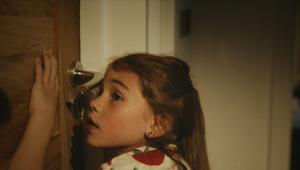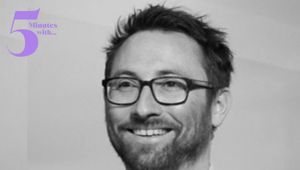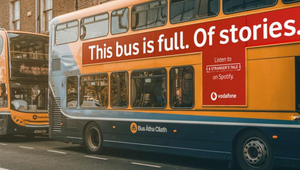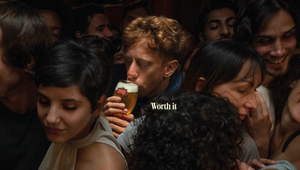
Bossing It: The Superpower of Understanding People with Conrad Persons

Conrad co-founded and served as the CEO of Mash, a creative, strategy and growth consultancy founded in 2010, which was then acquired by WPP in 2018. Mash offered four key services – insight, growth strategy, innovation and brand transformation – and worked for major global brands.
Conrad takes pride in building businesses and strong cultures, and two years after acquisition more than 85% of Mash’s original employees remained in the group.
Conrad Persons was previously global strategist at WPP. His focus is on advising leaders from the some of the group’s largest clients (Amazon, Dell, EY) on how to use the power of creativity to grow their businesses – be that speaking to new audiences, creating new experiences, services and business models, or designing ways to balance purpose and profit.
Conrad has served in in a variety of creative strategy roles, working on campaigns for clients such as American Express, KFC, and Baidu.
LBB> What was your first experience of leadership?
Conrad> A dark night. 16. With four friends alone in the north Georgia woods. Completely lost. No compass. No phones. Nothing but a few zippo lighters to help us find our way. And nominating myself to be the person who led us back. I got us horribly lost, but eventually we found our way (there’s a metaphor in there somewhere). The satisfaction of helping a group outweighed any burden of responsibility. I did not know it then, but that was its own taste of leadership.
LBB> How did you figure out what kind of leader you wanted to be – or what kind of leader you didn’t want to be?
Conrad> I had two incredible mentors. Jeremy Bullmore taught me the nuts and bolts of advertising in London, and miraculously made as much time for me as I needed. Eric Salama was running complex, matrix businesses and taught me how organisations work. Different people, but similar in that they helped me see the importance of how great leaders balance empathy, creativity, and commercialism. They both understood growth, but their superpower was in understanding people.
LBB> What experience or moment gave you your biggest lesson in leadership?
Conrad> Hard times have taught me more than good ones. When Mash, an agency I co-founded in London, hit a rough patch during an economic downturn, we had to make some hard decisions. Handling these moments with grace and decency perhaps says more about you than anything else. Have you built a crew of people willing to ride out a hard time with you? Do you manage to be clear-eyed but humane when you are under great pressure? Can you still find joy in work even when work is incredibly hard? It made me answer all of these questions in a pressure-cooker of a situation. I am a better leader for it.
LBB> Did you know you always wanted to take on a leadership role? If so, how did you work towards it and if not, when did you start realising that you had it in you?
Conrad> I did not grow up thinking I wanted to be a leader. But I did grow up knowing I liked to build things: teams, cultures, ideas. I was aggressively opportunistic. Where I saw the chance to do more or lead more – I took it. Even if it meant taking unconventional roles, even if it meant going places where I seemingly didn’t fit. I was interested in leadership as a skill set just as some people are interested in data or design.
LBB> When it comes to 'leadership' as a skill, how much do you think is a natural part of personality, how much can be taught and learned?
Conrad> I grew up listening to southern hip-hop, and as much as my friends and I wanted to sound like Outkast, we usually ended up sounding like a poor man’s cover band. Which is to say I do think there are some creative and artistic talents that feel innate, ‘she-was-born-with-it’ – wired in personality more than learning.
Leadership is a different kind of talent. It’s one that I believe is forged through learning, hard-won experience, hunger, and yes, a few intrinsic qualities too. No one is born into the world a perfect leader. Failure, growth, reasoning, other people’s advice – good and bad – these things all go into the pot.
LBB> What are the aspects of leadership that you find most personally challenging? And how do you work through them?
Conrad> You have to resist the idea that you can be a one-person saviour. That there are a multitude of tasks that only you alone can do. That everything is of equal importance and must be solved today. In short, leadership requires you to be strong enough to lean on other people, and to be brutal in saying yes to some things and no to others.
LBB> Have you ever felt like you've failed whilst in charge? How did you address the issue and what did you learn from it?
Conrad> Any career – if you’ve taken risks – will be littered with failures. Learnings abound. One of them is not to conflate failure on a specific issue, event, or relationship with failure of the enterprise. Failure can make you feel like Rome is burning – but in fact it’s more likely that it’s showing you a particular thing doesn’t work – a relationship, a way of thinking, a business model. If you can be clear-eyed enough in those moments, you can learn. If you are you drown in doubt, you sink.
LBB> In terms of leadership and openness, what’s your approach there? Do you think it’s important to be transparent as possible in the service of being authentic? Or is there a value in being careful and considered?
Conrad> It’s a great question. And the more I’ve led, the more I think it’s a false choice. I always try and be transparent – to share as much information and sentiment as I can. But there’s a certain point where sharing too much can cause a business to be jittery – when you start to share all information instead of the information that matters most. If we’re all heading due north, I don’t need to tell the business every instance of us getting knocked slightly off course. I need to keep the business focused on the destination.
LBB> As you developed your leadership skills did you have a mentor, if so who were/are they and what have you learned? And on the flip side, do you mentor any aspiring leaders and how do you approach that relationship?
Conrad> I’ve been fortunate enough to mentor strategists, creatives and technologists in the industry. My approach is fairly simple, and one I learned from the mentors mentioned above. I listen. When Jeremy passed, one thing I realised was that in almost all of our encounters, he made sure I was doing most of the talking. He had forgotten more than I knew, but what he was doing was helping me to answer my own questions, to articulate solutions to my own problems, to use him as a sounding board – not as an oracle. I try and approach mentorship the same way.
LBB> In continually changing market circumstances, how do you cope with the responsibility of leading a team through difficult waters?
Conrad> Leading through change is one of the essential responsibilities of a leader. If navigating difficult waters makes you feel uncomfortable, leadership will eat you. If you invert the idea and view it not as a source of stress but as a stimulant – something that forces you to think differently, to act quickly, to have a north star yet be open-minded enough to be flexible – than it feels less like something to cope with and more like a continued source of opportunity and growth.
LBB> As a leader, what are some of the ways in which you’ve prioritised diversity and inclusion within your workforce?
Conrad> DEI is incredibly important to me. I walked into my first advertising job at 21 in New York and didn’t see a single person who looked like me. It’s a lonely feeling – and makes you ask questions of a business, or indeed an industry.
In Grey, I am coming into a business that has prided itself on championing inclusivity. And I will build on that legacy. I have a particular passion point for opening early-career stage opportunities for groups that are underrepresented in our industry, for making areas like tech and AI more open, and for using the power of design to increase accessibility.
As I move into the role, I want to ensure that lofty words are matched by daily deeds. DEI suffers from a say-do gap, and I know Grey is part of the change.
LBB> How important is your company culture to the success of your business? And how have you managed to keep it alive with increases in remote and hybrid working patterns?
Conrad> Culture is important. But I don’t see it as an end unto itself. If you are building the right kind of culture, it should be an enabler. Does your culture please your talent but not your clients? Or does it do both? Does it help you retain talent? Or is it also a lighthouse for recruiting fresh blood? Does it give you a competitive advantage because it encourages creativity? Or does it stifle it? Culture should be strong and clearly articulated enough to survive changes in working patterns. And culture should help you grow.
LBB> What are the most useful resources you’ve found to help you along your leadership journey?
Conrad> The wisdom of mentors. And I read biographies, profiles and commentary as much as humanly possible. A variety of texts on people who have navigated change – be those historical figures (Jefferson, Franklin, MLK), industry figures (Bullmore, Ogilvy), or cultural changemakers (everyone from Daniel Ek to Public Enemy).















